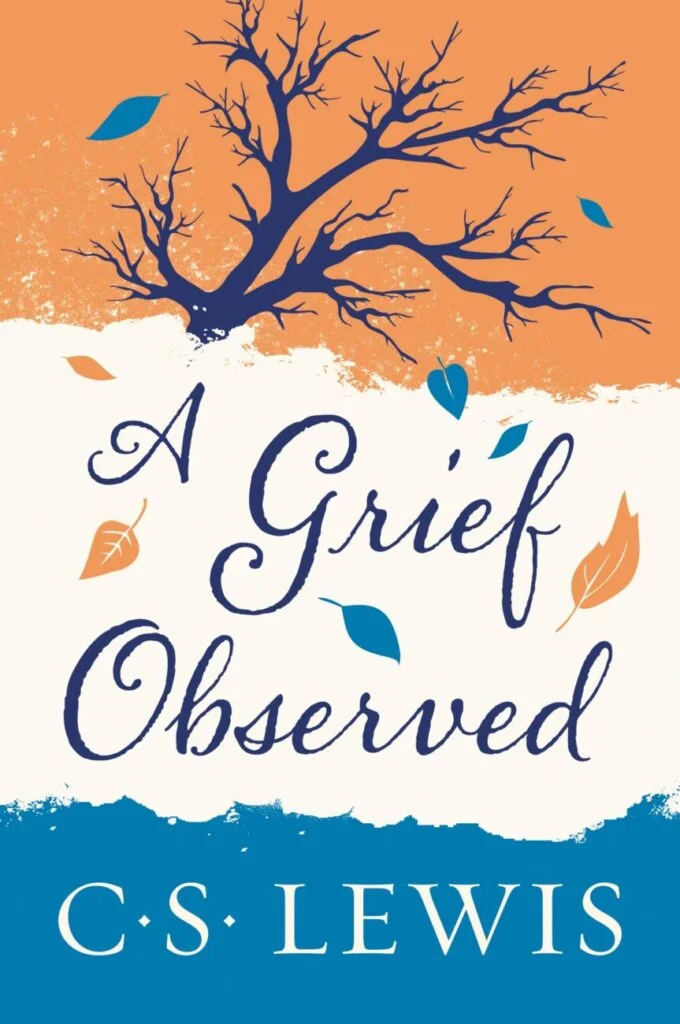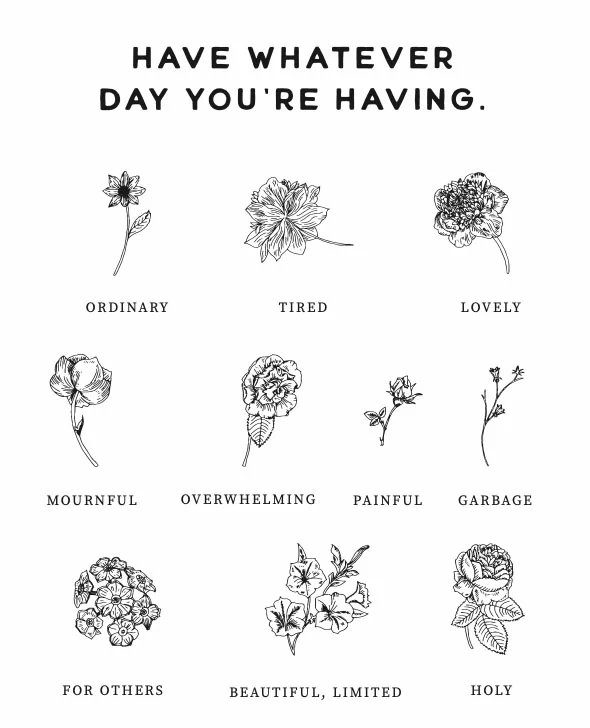support guidE
for when
a loved one has died
Hello my dear,
It feels so disorienting right after a deep loss. Of course, we wonder why? Why did this happen? Why did this happen to such a lovely person who meant so much to so many people? And rarely do we get a satisfying answer. Grief has a way of cracking us wide open.
Below you’ll find a small care package we put together to love, support, and encourage you when you’re grieving. We don’t pretend we can solve the problem of grief. For, as writer Jayson Greene reminds us, “Grief is the language of love.” But we hope these resources will be of some comfort as you mourn, and, in the meantime, sending you so much love.
Bless you,
Kate
a blessing
for when you’ve lost someone far too soon
From pg 80 of The Lives
We Actually Have
God, this. This is impossible.
This grief is too much to bear.
If there was a tight order
to the world that you made,
it’s come unspooled
and no one will wind it up again.
God, I feel it coming,
that ache for the stories that will never be told.
And an anger rising
when i remember
what never should have been.
Worst of all – God, could anything be worse? –
it is so beautiful
the way this grief is a language of love.
I am lovesick with this much sorrow.
Teach me to speak this new mother tongue.
Show me how to memorize
who I can never forget
what they gave and what is gone,
and what we were owed
by a world robbed of their presence.
Hold me by the edges
for I am coming apart.
And nothing but love
will find me.
Be the first to know when we release a new resource like this one.
WATCH
A blessing for life after loss (inspired by Kate’s conversation with Jerry Sittser on the Everything Happens podcast).
You can listen to their conversation here.

READ
The Cure for Sorrow:
A Book of Blessings for Times of Grief
Jan Richardson’s book of blessings offers surprising comfort and stunning grace from Jan’s own path of grief after the unexpected death of her husband.

READ
A Grief Observed
A classic work on grief, A Grief Observed is C.S. Lewis’s honest reflection on the fundamental issues of life, death, and faith in the midst of loss.
READ
Kate’s New York Times Opinion Piece:
What to Say When You Meet the Angel of Death at a Party
“I am not dying. I am not terminal. I am keeping vigil in the place of almost death. I stand in the in-between where everyone must pass, but so few can remain.”
WATCH
Nora McInerny’s TED talk:
“We don’t move on from grief. We move forward with it”
“You don’t really come to an answer until you realize there are no answers. And by answer, I mean that somehow it’s going to solve the problem. I think we have to learn to live in tensions where that is the answer, that there is none. And yet we can still figure out how to carry on, still find or make meaning, still choose to love and carry that grief forward in a way that becomes mysteriously life giving to us and other people.”
—From Kate’s conversation with Jerry Sittser episode on the Everything Happens Podcast
LISTEN
Rabbi Steve Leder:
Don’t Come Out Empty Handed
For ways we can show up for others in grief
LISTEN
Reverend Tom Long:
Number Our Days
For when grief threatens to swallow us whole, Rev. Long reminds us of our place in the a bigger story of hope, faith, and interdependence
LISTEN
Elaine Pagels:
Love Pulls You Forward
For how we love and keep loving after tragedy
LISTEN
Thomas Lynch:
The Good Funeral
For what elements make up a good funeral and what this funeral director has learned about life, death, and mortality
FREE DOWNLOAD
If you need a reminder to feel it all or you would like to pass this reminder along to someone you love, click on the image below. Then save, print, or set as your phone wallpaper.


